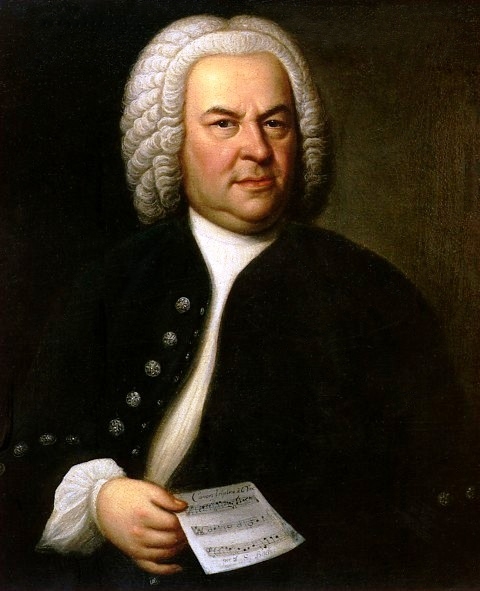JUNE 8, 2022 – (Cont.) “Bach himself wrote a preface to his collection of Inventions. Let me read it to you,” I said, “which I found on the internet—arguably one of the other great inventions of human civilization”:
Forthright instruction, wherewith lovers of the clavier [precursor of the modern piano], especially those desirous of learning, are shown in a clear way not only 1) to learn to play two voices clearly, but also after further progress 2) to deal correctly and well with three obligato parts, moreover at the same time to obtain not only good ideas, but also to carry them out well, but most of all to achieve a cantabile style of playing, and thereby to acquire a strong foretaste of composition.
“I don’t know what all that’s supposed to mean,” said the alien, “and it doesn’t much matter to me. As I said, the sound waves are extraordinary.”
Hmmm, I thought—Bach as “sound waves.” I’d never look at—I mean hear—Bach quite the same again. But I had something bigger up my sleeve.
“Okay, my friend,” I said. “I’ve got more Bach for you, but this time it’s something far beyond mere sound waves—at least for us humans, or more precisely, for us humans familiar with the wonderworks of J.S. Bach. Next I’m going to play for you a recording of Erbarme dich, mein gott [“Have mercy, my God”] from Bach’s St. Matthew Passion. But before you hear it, I need to tell you a tad about this piece, because it relates directly to a core trait of humanity—one I’ve touched upon but that needs far more explication before we get too far into our conversation.
“What trait is that?”
“Religion. You see, Bach was a deeply religious person—not unlike most humans of Europe during his lifetime from 1685 to 1750—(it’s now the year 2022, in case you’re keeping track, which you probably aren’t given your detachment from time). He was a church musician, and much of his enormous compositional output was in praise of his god so that his church could praise Bach with a livelihood. Among his many works were long choral masterpieces about the death and resurrection of Jesus Christ, the son of Bach’s god . . .
“Wait a sec—who was his god?” asked the alien.
“It’s a long story, but now that you ask and now that I think about it, the short version might be that music was his god and God—capital ‘G’—was his music. A fuller explanation is best left for a later juncture in our conversation.”
“Really? Later? Why not now?” Inadvertently, I’d sparked the alien’s curiosity. It threatened to drag me where I didn’t want to go—at least not yet.
“Because,” I answered, “we’re talking about humanity’s ‘best stuff,’ and God gets all wrapped up in religion, which is a human construct and not a divine creation. I wouldn’t rank it among our ‘best stuff.’”
“I see,” said the alien. “So—you were saying . . . ?” (Cont.)
(Remember to subscribe to this blog and receive notifications of new posts by email.)
© 2022 by Eric Nilsson
